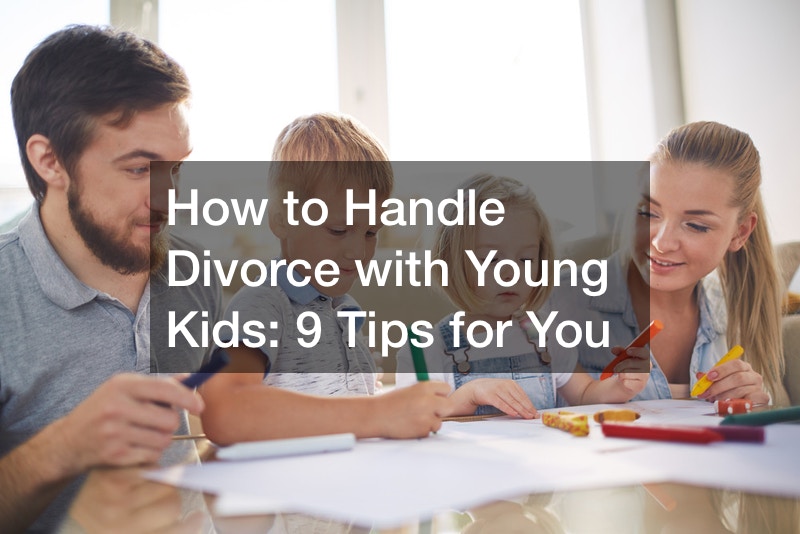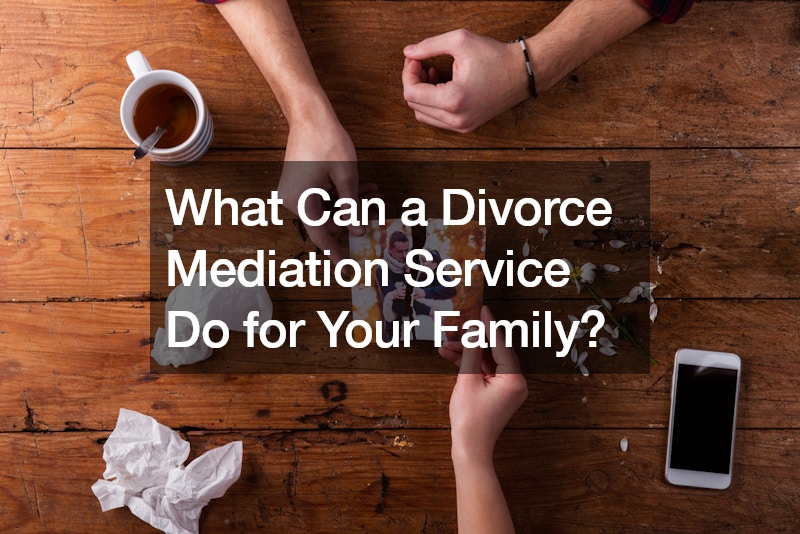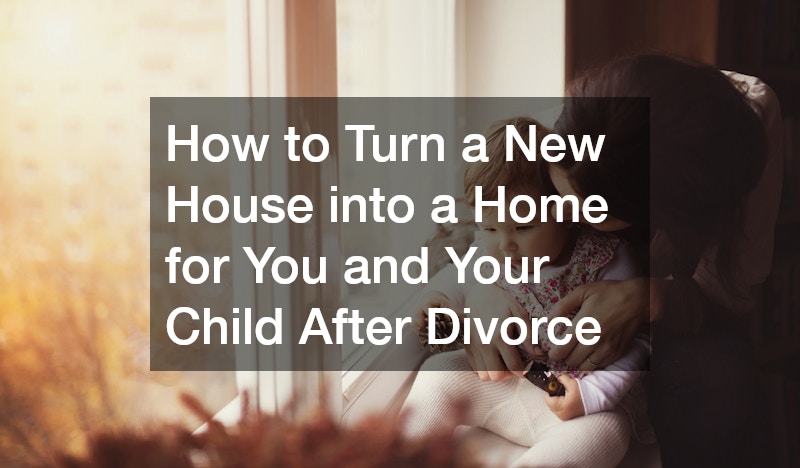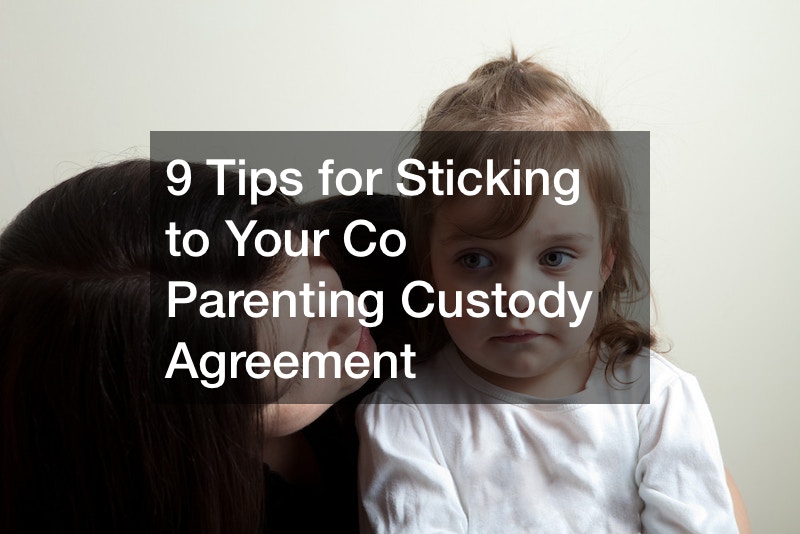
The reality is that divorce is a significant, life-altering event, and kids and their parents often feel the very real effects of that.
According to The Star Tribune, after children’s parents’ divorce, “The world is newly perceived as a far less reliable, more dangerous place because the closest relationships in their lives can no longer be expected to hold firm.” Even the most amicable divorces leave children spending less time with each parent. While that time used to be shared, children now spend time with each parent separately. In some cases, children must navigate two separate family systems, two different sets of rules, and grow accustomed to the logistics of dividing up holidays between parents and carrying their personal belongings back and forth.
Oklahoma’s News 4 reports that parents experience similar difficulties adjusting to their new lives after divorce. In fact, as many as 22 million felt alienated from their children or more distant from their children.
While these statistics are emotional and eye-opening, they are not set in stone. There are several things parents can do to ease the transition for their young children and ensure that they are as happy as possible.
Struggling to work out how to handle divorce with young kids? Follow these pointers to keep the process as painless as possible for you and your children.
Don’t Panic

If at all possible, do not panic. While it may seem only natural to have a crisis of self following a divorce, your children need you and you need to keep a clear head while you continue to undergo the formalities of the divorce process.
Mitigate panic by narrowing your focus. For example, if you notice a crack in one of your basement walls, it is best to simply focus on that basement crack repair rather than think about all the possible ramifications of structural damages to your home. Get the problem fixed and move on. Do not spend time dwelling on potential water damage, flood damage, structural damage, and lofty expenses if you leave it be.
Apply that same logic to your divorce and to your children. Start by telling your kids that you will be getting a divorce. Sit down with your partner and discuss how you will share the news. Share it, and then focus on answering your children’s questions and walking them through any emotions they feel.
Stay on one task at a time to make the process manageable and considerably less overwhelming.
Take It One Day at a Time
If you are wondering how to handle divorce with young kids, it can — and often does — come back to taking it one step at a time or one day at a time. Just like focusing on one task or revelation can help manage panic, taking it day-by-day can make navigating divorce with young children considerably less stressful.
For example, if you do not have your kids on a weekday, and you have plans to meet with your attorney to discuss dividing up outstanding debts from your marriage, think about what you need for that meeting. Bring bank statements, loan statements, and any other appropriate documents. Bring a list of any questions you may have about these debts. Because you will not be making any final decisions or determinations about child custody or child support on that given day, do your best to focus on what you are working through and what you can control during that particular meeting.
Likewise, if you are spending the day with your kids, make it about them. Come up with a list of fun activities to do. Ask your kids what they would like to do. Don’t spend the day secretly obsessing about the state of your finances.
Maintain Open and Honest Communication With Your Children

Initially, it may seem best not to talk about your divorce at all, especially with your kids. However, this can be a mistake, the wrong approach to how to handle divorce with young kids, and it can lead to more frustration in the long-run. Instead, maintain open and honest communication with your children.
You do not have to needlessly flood them with information about the divorce. Think about the ways it will directly affect them, and address it. For example, if your child is attending one of your town’s local sports camps this summer, talk to them about who will pick them up and drop them off. Talk to them about where they will be staying before and after camp.
Many conversations may revolve around practical decisions like this one. Your kids’ schedules may change, and it is important for them to be aware of these changes. Use a dry-erase board or a large, color-coded calendar to help your children keep track.
Of course, other topics will come up. Do not stonewall young children from discussing your divorce. That is not how to handle divorce with young kids. Instead, follow their lead. If they have questions that come up after your initial discussion, let them ask these questions. Answer them as patiently as possible. Give an age-appropriate answer and tell them as much as they need to know. It can be helpful to gently prompt children — especially shy children — to see if they have any questions about your new arrangements. Avoid bad-mouthing your ex-spouse, and do not pressure children into talking about their feelings.
Don’t Involve Your Kids In Conflicts or Legal Conversations
Maintaining open and honest communication with your children does not mean oversharing or dragging them into things that are not their concern. Keep legal conversations between you and your lawyers. If you need to vent about conflict with your ex-spouse, talk to a friend, a confidant, or a therapist.
“You know your personal hot-button issues, the topics that, if they surface in conversation, almost always result in raised voices or tension. Do your best to avoid these topics in front of your kids,” Yahoo Life! recommends. That means having some discretion. If delving too deeply into finances, discussing spousal support at length, or talking about your ex-spouse’s new romantic interest upsets you, do your best to steer conversations away from these topics. Avoid bringing them up altogether and, if your child brings it up, gracefully move on to a new topic of conversation.
Finally, remember that you are maintaining open and honest communication about your divorce and its aftermath for your children. If you are unsure, think about whom the conversation would be for before bringing it up. Who benefits from talking about a particular subject? If the answer isn’t your child, then the conversation may be more appropriate for a friend, adult, or professional.
Don’t Talk Negatively About the Other Parent In Front Of Your Kids

One of the most important tips on how to handle divorce with young kids is to avoid speaking ill of their other parent.
Your child isn’t yours alone. You share them with your ex-spouse. By bad-mouthing their mom or dad, you may inadvertently be sending the message that something is wrong with your children. Your children will internalize that message and struggle to make their peace with it.
Further, speaking ill of your spouse may cause your child to resent them — or even to think less of you. Remember, in most cases, your children need both of their parents. Do not take that away from them by turning them against their other parent. Your marital problems are between you and your ex-spouse, not between you, your spouse, and your children. Your children may also grow to begrudge you for talking negatively about a parent that they love and continue to look up to.
Help Your Kids Establish and Stick to a New Routine
Professional advice on how to handle divorce with young kids makes it clear: routines are critically important.
Routines help people of all ages feel as if their lives have meaning and order. For children going through a messy divorce, it can also help them seize a sense of control in otherwise unpredictable circumstances. Talk to your ex-spouse about securing a local pediatrician and finding a local family dentist office to keep kids consistent with doctors and dentist appointments.
Therapist Katie Malinski recommends granting your children some control over their new routine whenever and wherever possible to help them feel more relaxed and in control of their surroundings. For example, Malinski suggests giving children the freedom to pick out what items they want at mom’s house and dad’s house, to choose the paint color for their new room, or even to choose what kind of food you order on the weekend.
Engage Your Kids In New Projects

Another way to establish normalcy and how to handle divorce with young kids is to engage them in new household projects.
Let your kids choose the paint color for his or her room and even help you paint (with adult supervision, of course).
If you will be undergoing a home remodel, involve your kids in whatever way you can. That may mean helping you choose between Amish dining room sets — kids are more opinionated than you might think! — or asking them whether they would prefer a new treehouse, swings, or a slide in the backyard.
Always Keep Your Kids In Mind When Making Legal Decisions With Your Soon-to-Be-Ex
When it comes down to it, how to handle divorce with young kids does involve your ex-spouse from time to time. For example, there is a difference between physical custody and legal custody. Physical custody deals directly with living arrangements. Legal custody, on the other hand, requires you to think about who will make decisions if your child falls off the monkey bars and breaks a limb, if your child needs braces, or — down the road — if your child needs his or her wisdom teeth removed. Decide whether these decisions will fall on one parent or whether you will share legal custody equally, similar to physical custody.
Take Care Of Yourself

Most importantly, take care of you. While it may seem counterintuitive, selfish, or even painful to prioritize yourself as your children struggle to come to terms with your divorce, the truth of the matter is that you are best able to help them when you take care of yourself.
Children are far more observant and aware than we give them credit for. Often, they know when you are unhappy, stressed, or angry. Not only are you more likely to overreact and lash out at the people around you when you are under an extensive amount of stress, but your children pick up on this energy and it is likely to make them feel upset or ill at ease as well. Seeing you happy makes your kids feel happy, too. Young children are sensitive to our moods. They love you, and they want you to be well.
Similarly, when you take care of yourself, you are more likely to be more present. Self-care affords you the mental well-being to attend to your children and to fully enjoy time with them rather than continually ruminating about the past or fretting over the future.
Further, pushing yourself too hard can make you physically ill, and even the best parents struggle to be loving, affectionate, and on the ball when they are not feeling well.
Stay healthy and get in the right frame of mind to be the best possible parent by prioritizing self-care. Self-care comes in a number of different forms. Some parents may feel properly rejuvenated after a long walk, a hot bath, or a relaxing massage. For others, especially those struggling with the emotional complexities of their divorce, seeking professional mental help is a tremendous boon to their well-being and, ultimately, the well-being of their children. Find a local support group for recently divorced parents, talk to a therapist, or ask your doctor if medication is the right option for you.
When it comes to how to handle divorce with young kids, there isn’t one right answer. However, one thing remains true: the people in your life always benefit when you take care of yourself.
Wondering how to handle divorce with young kids? Remain proactive. Take it one day at a time, use discretion, and prioritize self-care to keep your children happy and healthy.



